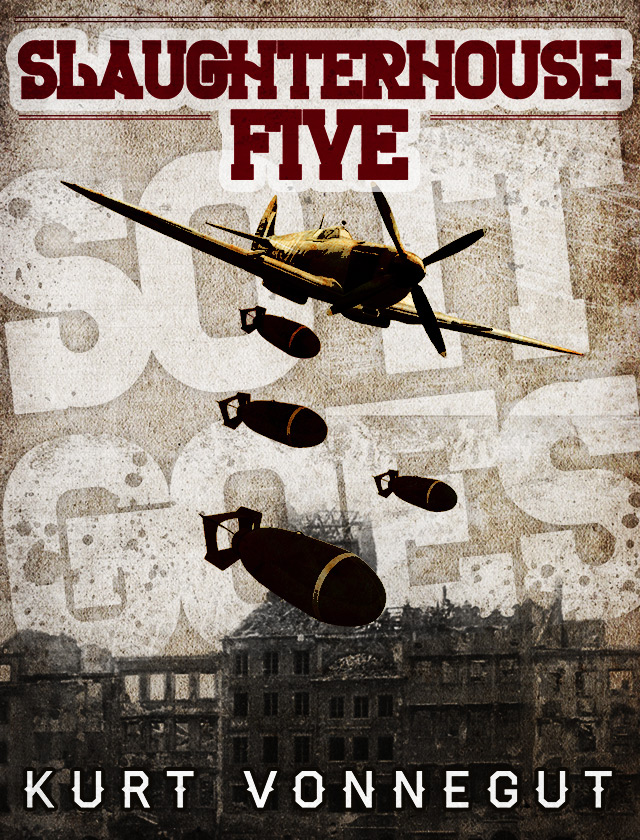Slaughterhouse-Five
by Kurt Vonnegut
Billy Pilgrim
In Chapter 1, Vonnegut promises Mary O’Hare that his war novel will not glorify the war or make the “babies” who fought in it appear heroic. With the character of Billy Pilgrim, Vonnegut certainly keeps his promise. Billy Pilgrim is physically weak, odd-looking, absurdly dressed, and completely inept as a soldier. He is far from heroic, and his attitude during the war is one of numb shock. He doesn’t even appear to possess a survival instinct, much less a fighting instinct, considering how often he begs to be left behind to die.
From the beginning of his life, Billy has a passive outlook and seemingly little will to live. When his father tosses him into the deep end of a pool, applying the sink-or- swim philosophy to the small boy, Billy sinks. In fact, he resents being rescued. If it were up to Billy, he wouldn’t have survived childhood, much less World War II. Billy’s survival is the product of purely random chance, and Billy projects this general attitude onto everything in his life. He does not really choose to do anything; he merely does it. In this way, the passive, unenthusiastic materialism that defines Billy’s adult life comprises a deliberate satire on the myth of the American dream, the idea that material success and the acquisition of things can make a person happy. Billy goes through the motions perfectly, but his life is ultimately hollow and joyless.
Billy deals with the trauma of the war, as well as the emptiness of modern American life, by re-creating his reality so that it makes some kind of sense to him. In the Tralfamadorian schema of reality, there is no free will; thus, no one is actually in charge of his or her own destiny. Throughout his life, Billy’s own free will has always been treated as irrelevant or nonexistent. Billy’s will is consistently overpowered, and often completely crushed, by a more aggressive (if not violent) form of masculinity, as embodied in Billy’s father as well as Lionel Merble, Roland Weary, Paul Lazzaro and, ultimately, all the men responsible...
Sign up to continue reading Billy Pilgrim >